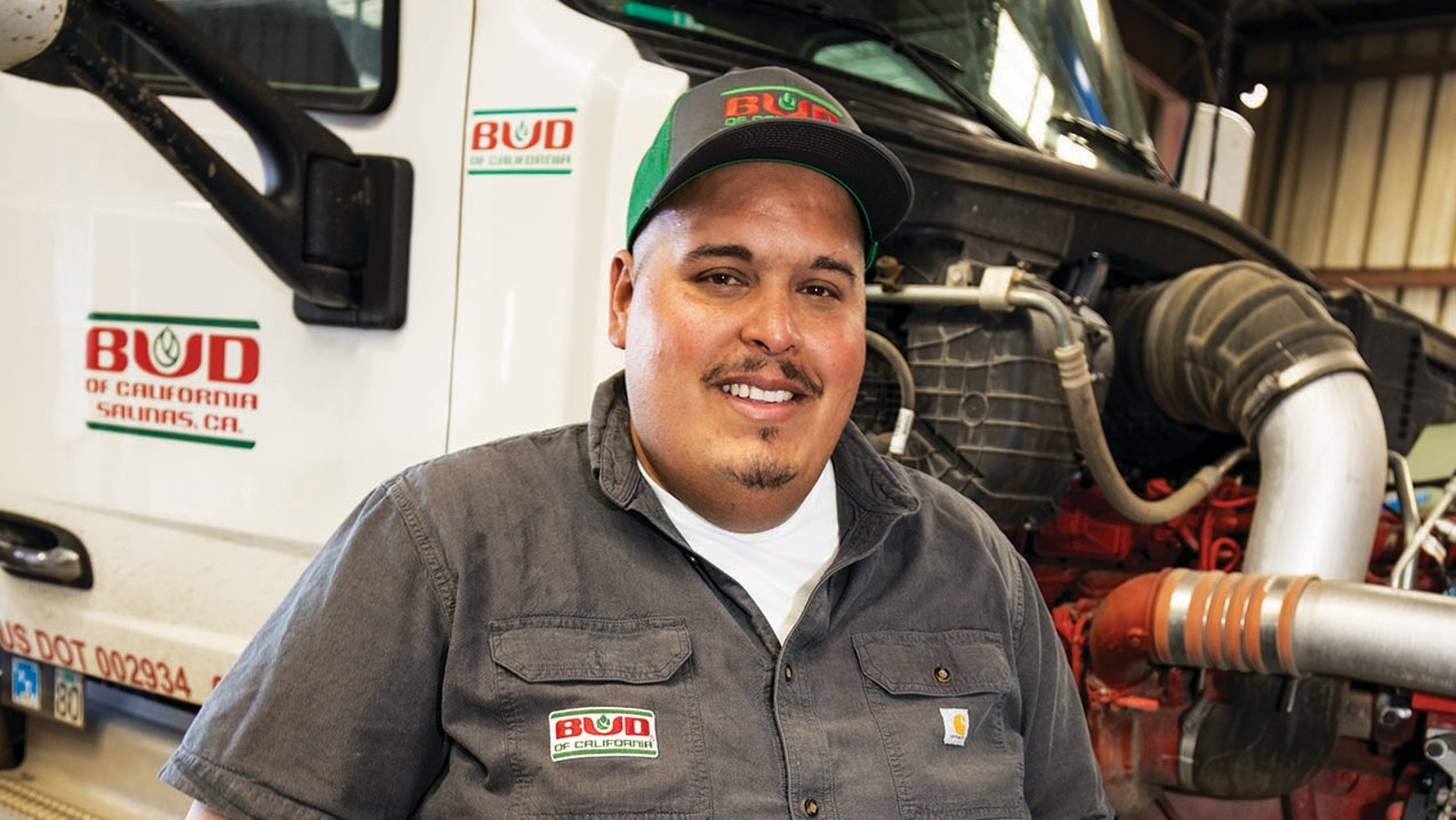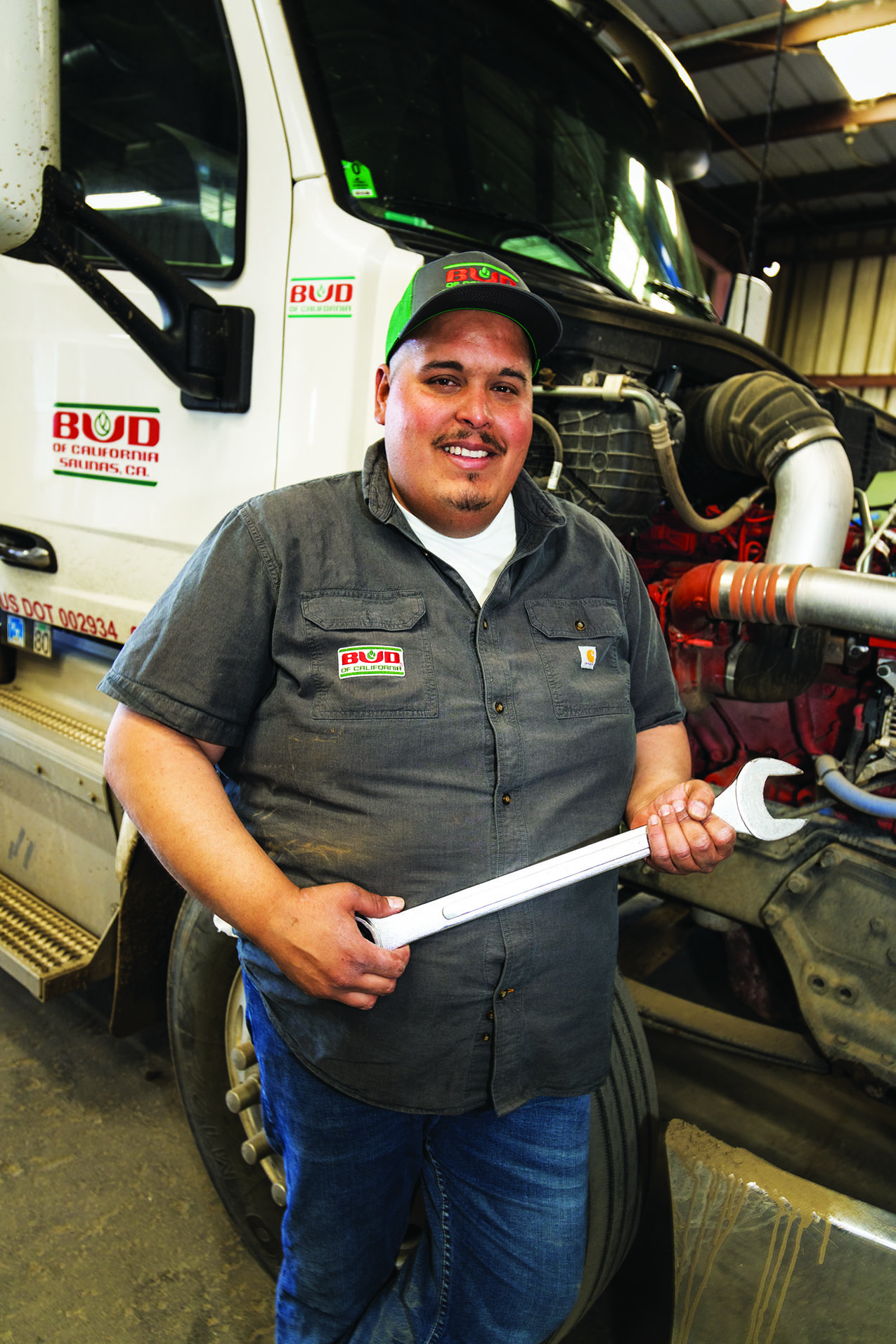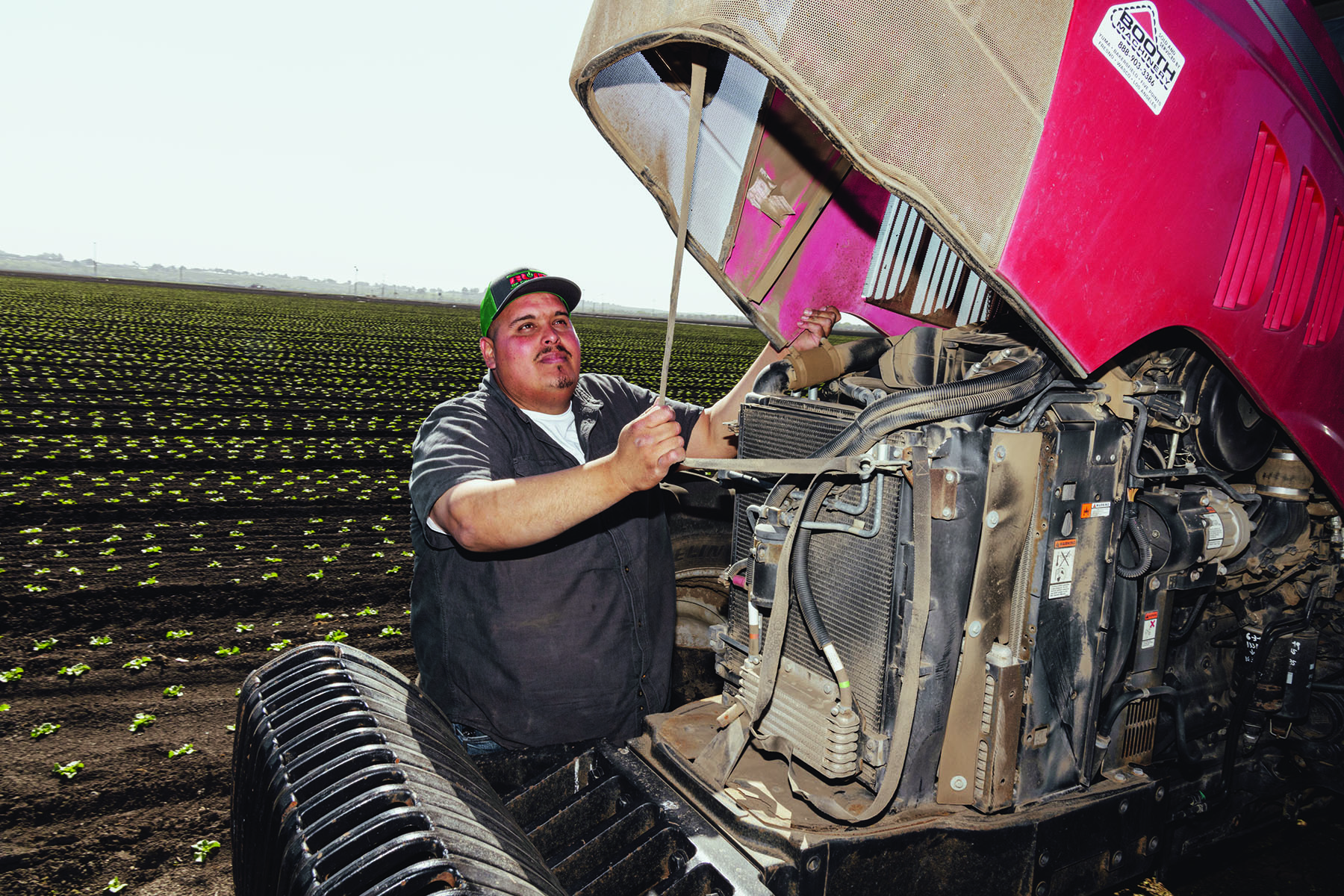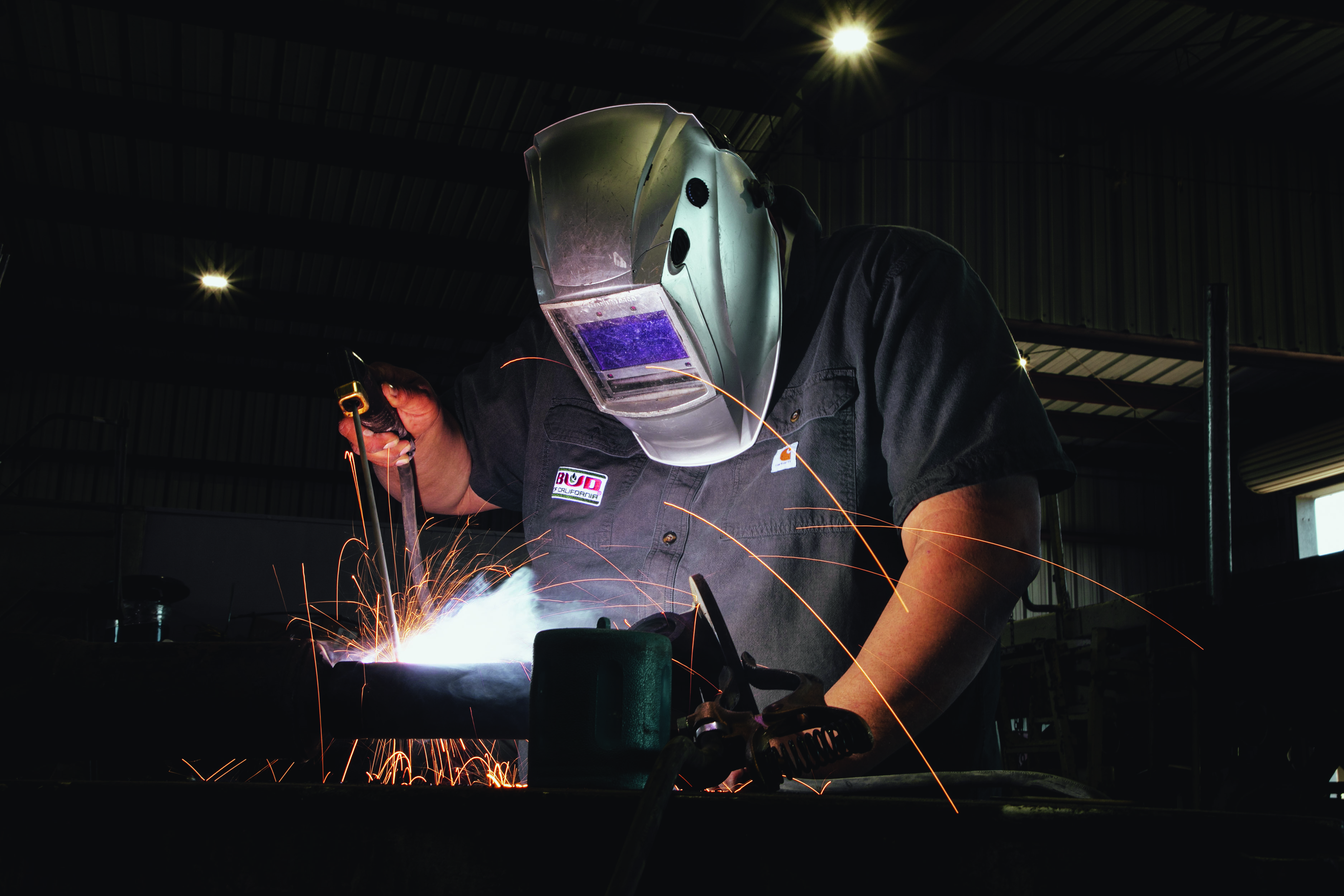It's a bountiful life: Combining passions

July/August 2022 California Bountiful magazine

Ag mechanic turns his love for farming and 'turning wrenches' into a career
Story by Linda DuBois
Photos by Richard Green
Ramiro Ruiz Jr. is an unsung hero of agriculture: the one who comes to the rescue when a piece of equipment breaks down and farmers can't finish a harvest, transport produce or plant a field. A mechanic for 16 years for Dole Fresh Vegetables/Bud of California in Monterey County, Ruiz and his 25 colleagues work hard maintaining agricultural machinery—so farmers and truck drivers can get nutritious food to America's dinner tables.
What drew you to agricultural mechanics? I grew up on a 5-acre farm in Castroville. We grew fava beans and zucchini. All my family worked in agriculture. My mom picked Brussels sprouts during the winter in Moss Landing and Watsonville. My dad was a forklift driver, but for our own farm, he always fixed his own tractors, trucks and pickups. I would see him working on things and then I'd want to work on things. So, I would always help out when I was a kid. He'd give me a wrench. He'd give me a socket. So, I love farming and I love working on equipment. This was a way to do both of my passions for a living.
What is your typical day like? I'm a shop foreman of the division in charge of the (diesel) trucks, the trailers and the foremen's pickups—but we fix everything. We've got different departments of guys who fix, say, just the lettuce harvesters, but when they need help, they call us. I'm also in charge of maintaining our harvest equipment. So, we make sure everything's ready to go to work every day. When our guys fix something and they have problems, they'll call me and I make sure it's done right, and I double check everything. We all travel. None of us stay in Salinas year round. Once the harvesting is done here, I go to Yuma and Huron and all of the Salinas Valley.
Do you work mostly in a shop or out in the field? Both. We maintain the trucks and harvesters in the shop and if a harvester breaks in the field and we can't repair it there—like an engine blows up or something big—we bring it into the shop. But if it's something routine, we'll go into the middle of the field, we'll lie underneath the equipment and we'll work on it right there on the dirt. So, sometimes we get muddy and dirty.

How often do things break down? Oh, man. People don't realize—it's every day. It's not like corn or soybean farmers back East that harvest once a year and they park their equipment for the winter. In the fresh-vegetable business, it's all year round. So, the machines are worked almost 24/7. It's hard on the equipment.
What is rewarding about what you do? Say a harvester breaks down in the middle of the field. The work stops. So, I like going out there and fixing the machine, making sure the people are going back to work and harvesting the vegetables—so they can be brought to the dinner table. I love that. A lot of people don't take into consideration what we do. They know about the farmworkers and the farmers, but they don't know what goes on in between.
What's one of the big challenges to your job? All this new equipment that's coming out is computer controlled. That's one of the biggest things because a lot of the guys are old-timers. They're used to wrenching on mechanical engines. It's easier for the younger guys because they're more tech savvy. The older guys can remove an engine, but when it comes to this new equipment, they don't know what they're doing. So, they're asking for a lot of help.

If you don't have a needed part on hand, do you ever improvise and fabricate something? All the time. Say someone's fixing an engine and there's a part that breaks and we don't have it in stock and the parts place is closed, we'll pick up (the damaged part), we'll fabricate it, we'll weld it up and slap it back on. Then whenever the parts get here, we'll change it to the new part. So yeah, we rig a lot of stuff up so we can keep on harvesting. We have a lot of parts in stock though.
What shifts do the mechanics work? There's a day shift that's between 5 and 6 to 3:30 or 4:30 or whenever the job is done—because you can't plan when things break down. The night shift is from midday, 12 or 1 in the afternoon all the way to 12:30 at night. Our spinach crew, depending on the weather, they'll harvest at 10 o'clock at night, midnight, 2 in the morning. So, there's also a graveyard shift. There are only two guys for that though. They alternate and switch off every two weeks.
Anything else special about your job? Well, I work with my twin brother (Jose). He started a week after I did. He's in charge of the spinach crews and all the machines. He's a spinach man. That's what we call him now.
You have an Instagram page with nearly 11,000 followers. Why do you think you have so many fans? I'm an amateur photographer. When I started working here, I was out in the field a lot. So, I just started taking pictures here and there and posting them and people would like them. If I see a beautiful sunset over a lettuce field and take a picture of it and post it, people will say, "Oh, that's so beautiful!" I also like showing how everything works on the farm. So, I'll take pictures of people harvesting lettuce, planting or discing a field, and people love that, too. And then most mornings, I say, "Good morning, Instagram!" I try to be happy and positive. People love it. They say, "Oh, I love your positivity, Ram!" It was my wife's idea to start the page, but I love it now. I can't get enough of it.
How did you become such a talented photographer? I took photography two years as an elective in high school. I originally took it just to graduate because I needed (the credits). But I really liked it and thought maybe I could do it for a living, but then I thought, "No. I'd rather turn wrenches. That's my thing—fixing things for a living."

